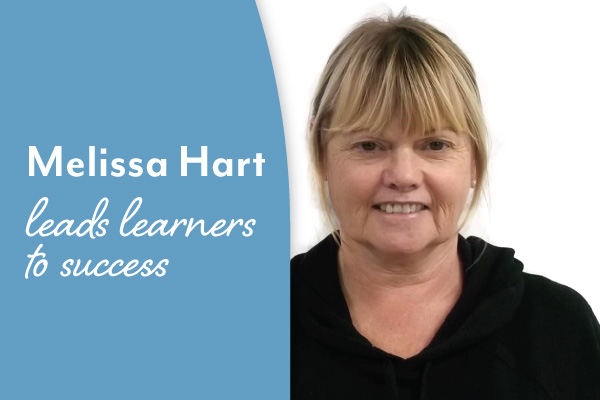The aged care sector is no stranger to burnout. While we may not always be able to avoid burnout, there are many ways in which to prevent it from taking over, counter its effects, and to recover from burnout when it’s experienced.
By now, many of us will be familiar with the term ‘burnout’ – but how many of us know what it really means? It’s a word we use to describe feeling exhausted, ineffective and mentally distanced from work. It’s something we’ve seen a lot of since the onset of the pandemic as healthcare and frontline workers continue to meet new challenges in their industries.

What is burnout?
Burnout is a syndrome or condition resulting from workplace stress that has not been successfully managed. While burnout is usually temporary, its effects can be overwhelming if not properly addressed.
Burnout – particularly in healthcare – has become so prevalent in the past few years that it’s now been entered into the World Health Organisation’s (WHO) International Classification of Diseases. According to this classification, symptoms of burnout fall into three main categories:
- Having no energy, feeling depleted or exhausted
- Feeling negative or cynical about work, wanting to avoid your job
- Reduced efficiency or a drop in professionalism at work
Burnout is different to stress and it works in different ways. Where stress is high energy, burnout is low. Being stressed falls under what experts consider the ‘normal’ range of emotions, whereas burnout is used to describe a mental and emotional state that goes beyond the normal scope.
Basically, we could say that when we experience burnout it feels like we’re not getting enough of what we need – not enough care, not enough time, not enough support. It can lead to feeling empty, exhausted and drained. A good way to identify if you’re experiencing burnout might be to ask yourself: ‘Am I beyond the point of caring?’
It’s important to realise that burnout is a collective problem and not just an individual one. In a challenging sector like aged care – especially in times of crisis – everyone is responsible for preventing burnout, not just individual workers.
Burnout on the rise
Healthcare and frontline workers are already more likely to exhibit symptoms of burnout due to the stressful nature of their jobs. This figure rises dramatically in times of crisis – which is why we’ve been seeing so many workers affected by burnout since the onset of the pandemic. Recent studies charting the effects of COVID-19 on healthcare sectors report an alarming increase in burnout, with 70% of healthcare workers experiencing burnout since the onset of the pandemic.
According to some projections, over the next few years the aged care sector is set to face ongoing resignations and staff shortages due to COVID related burnout. It’s not hard to understand why. As everyone working in aged care currently knows, we need to implement some changes and supports which directly address caregiver burnout.
Change has to occur at all levels in order to be effective, from:
- individual aged care workers taking steps in their own lives
- management improving practice in the workplace
- providers making changes on an organisational level
- governments working with the sector to address staff shortages
The best thing we can all do is to see burnout as a collective problem requiring collective understanding and care.
Next steps: addressing burnout together
If you or someone you know is feeling burnt-out, don’t despair. Below you’ll find some simple steps you can take to prevent or reduce the effects of burnout.
Next steps for carers:
Start by having a conversation. Your employer is there to listen to your needs and support you in any way they can. Remember your employer is only ever a phone call, email or in-person chat away – don’t be afraid to approach them to talk about burnout and what they can do to help. There are often resources in the workplace we don’t even know about, and your employer can help connect you to the range of services they provide.
It’s important to communicate with management so they know burnout is effecting their staff. Approaching burnout from an organisational perspective is the most effective way to ensure everyone’s needs are getting met. It’s comforting to know that something as simple as a conversation could have a huge effect on you and your co-workers’ mental health and wellbeing.
Next steps for learners:
Studying, learning and completing practical placements can be stressful at the best of times, not least during a pandemic! We know exactly how difficult it’s been, and that’s why we’ve made it our mission to ensure all our learners are supported.
Our advice? Talk to your trainer! They’re your first point of contact, and you can talk to them about anything and everything. They know the ins and outs of the industry, including how difficult and how rewarding it can be. Your trainer will be able to put you at ease, answer questions, and connect you with additional services should you require them.
As we always say, we’re here to support you.
The importance of self-care
We talk a lot about self-care, but sometimes it’s easier said than done. When you’re feeling burned out, stressed, tired or overwhelmed, it can be difficult to think of ways to look after yourself.
Instead of thinking about all the things you’re not doing, a good approach to self-care might be to think of things you can do depending on your circumstances.
For example, if you’re working night shift, catching up with friends in person might be difficult: instead you could talk to them on the phone. If you’re working early mornings, heading out for a late night dinner or movie might sound impossible: instead you could check out a delivery service which brings restaurant-quality meals to your door. It’s the little things that make a huge difference, and often this comes down to simply changing your mindset.
It’s different for everyone, so without going into too many specifics here are some ideas you might find inspiring as a new self-care motto:
- Do things you love – find out what makes you happy and roll with it!
- Reach out to family and friends – to maximise your support network
- Communicate – talking about how you’re feeling can be helpful, whether this looks like talking to your boss, your partner, your therapist or your friend
- Take care – look after yourself! Everyone’s rituals are different, but you know what works for you
- Stay engaged – with resources and people who can support you
Take advantage of mental health resources
It’s really important to have a good support network and to stay connected – not just with family, friends and community, but with organisations and resources that support your mental health and wellbeing.
The team at Selmar have compiled a handy list of mental health resources for anyone needing that extra little bit of support. Reaching out to a dedicated professional or organisation is a wonderful way to give yourself a ‘safety net’ for those times you need something or someone to fall back on.
We’re here to support you
Because we work closely with the aged care sector, we know just how serious burnout can be. We want to help reduce its effects and hopefully prevent some people from having to experience burnout over the course of their career. Whether that’s through dedicated trainer support or through industry consultation, we’re proud of the work we do.
Get in touch with our team to find out more about how we aim to support learners, workers and aged care providers.



